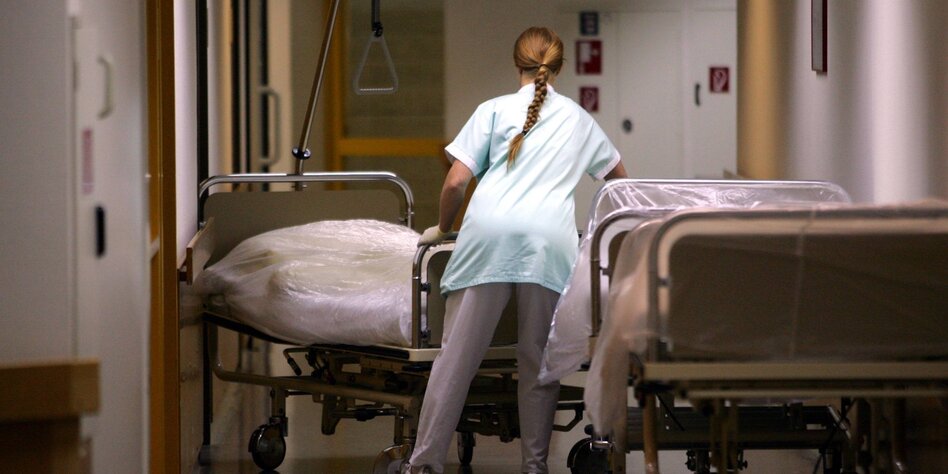After long negotiations, the Minister of Health presents the hospital reform in the Bundestag. What is planned and what the opposition says about it.

The hospital reform aims to give staff more room for maneuver. This is the plan Photo: imago
SEDAN cup | On Thursday, members of the Bundestag publicly debated the controversial hospital reform for the first time. Federal Health Minister Karl Lauterbach (SPD) took the opportunity to defend his bill. “Private providers sometimes make huge profits, but the hospitals we need to serve rural areas struggle for their existence,” Lauterbach explained. Without reforms, a quarter of hospitals could go bankrupt by 2030.
With the reform, Lauterbach wants to reduce bureaucracy in hospitals, ensure financing and allow good care for everyone. The law aims to reduce financial pressure on hospitals, which should give them more freedom to give their patients the care they need.
So-called fixed rates should therefore be partially abolished. These were introduced in 2004 and guarantee reimbursement based on treatment cases. According to Lauterbach, they allow savings in the health system because they encourage more and more interventions and examinations to be carried out. Lauterbach spoke of a “price” that each patient would have to bear.
In the future, clinics will receive payments regardless of the services they provide, through so-called retainer fees, which will cover 60 percent of their budget. So they get paid for the services they offer, not for the services they actually perform.
Basic care in the field
Lauterbach also wants to change the hospital landscape. In the future, complicated procedures such as cancer, stroke or joint replacement will only be performed in specialized clinics. There should be a solid basic supply in rural areas. To achieve this, Lauterbach wants to link the financing of hospital treatments to quality criteria. To do this, hospitals are divided into so-called service groups, for which minimum requirements are defined, such as the number of annual treatments and technical and personal equipment. Only clinics that meet these requirements (within a transition period) will be able to bill for treatments in the corresponding service group.
“The health system is in intensive care”
The introduction of service groups is expected to lead to the merger or closure of departments or entire hospitals, especially in overserved metropolitan areas. However, entire wards and clinics are already periodically closed due to financial difficulties or lack of staff. This “cold clinical death” aims to prevent reform.
The clinical atlas aims to create more transparency
Tino Sorge, who is part of the CDU health committee and responded to Lauterbach, agreed with the minister on one point: “We need a reform, all parties agree on that. After this phrase, no good words came out On your part”. lips . Sorge accused Lauterbach of having lost his way, both with the hospital atlas and in general. The Union health expert accused Lauterbach of not respecting the agreements and called for “joint action.” The concern is that supply in rural areas is especially at risk.
Lauterbach had previously stressed that municipal suppliers in particular would benefit from surcharges and maintenance fees. Without reforms, smaller rural hospitals in particular would be at risk of bankruptcy.
FDP health expert Andrew Ullmann also sponsored the bill: “The health care system is in intensive care,” said Ullmann, who worked as a doctor. Germany has one of the most expensive health care systems in the world, but also one of the most inefficient. This reform will give medical staff breathing room and room to act, said Ullmann.
The project will now be debated in the committees. The Bundestag is expected to approve the reform in the fall.
